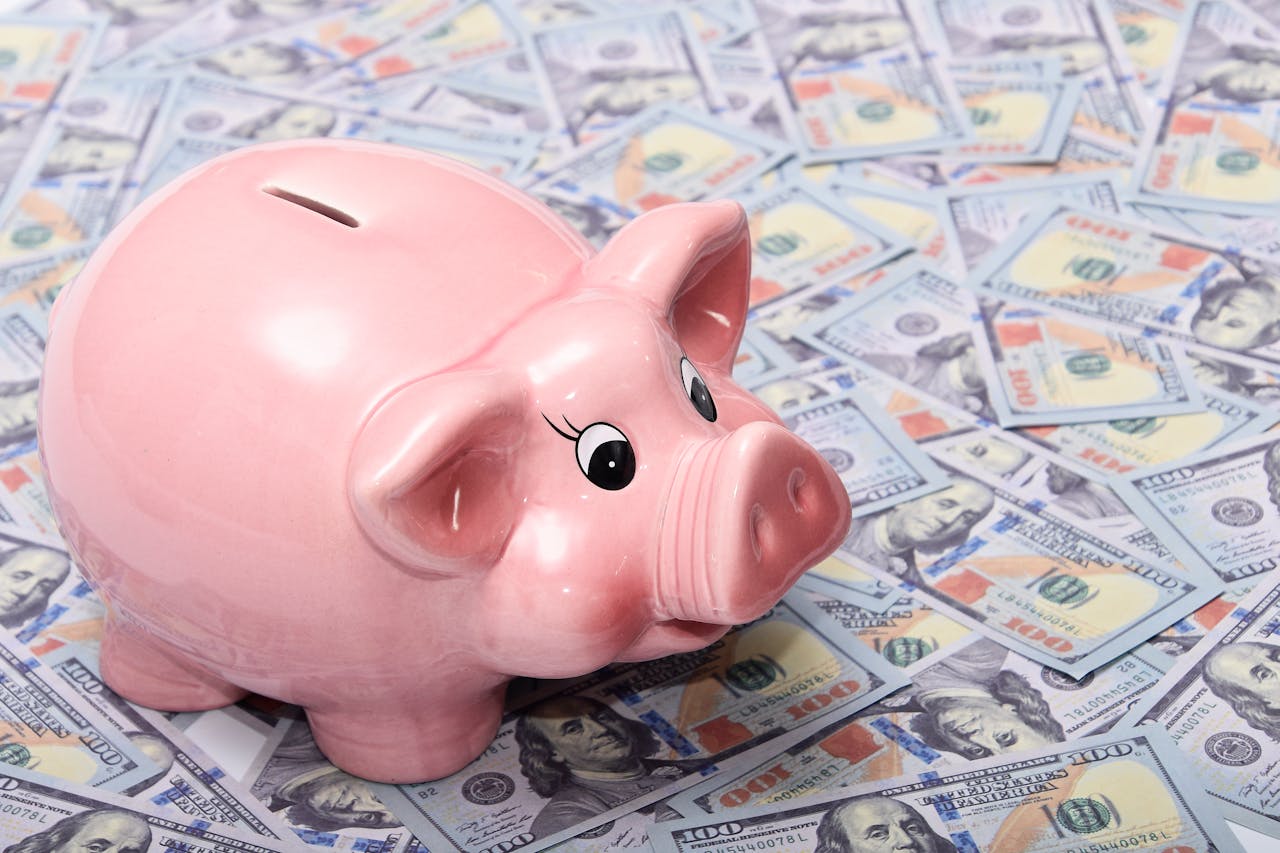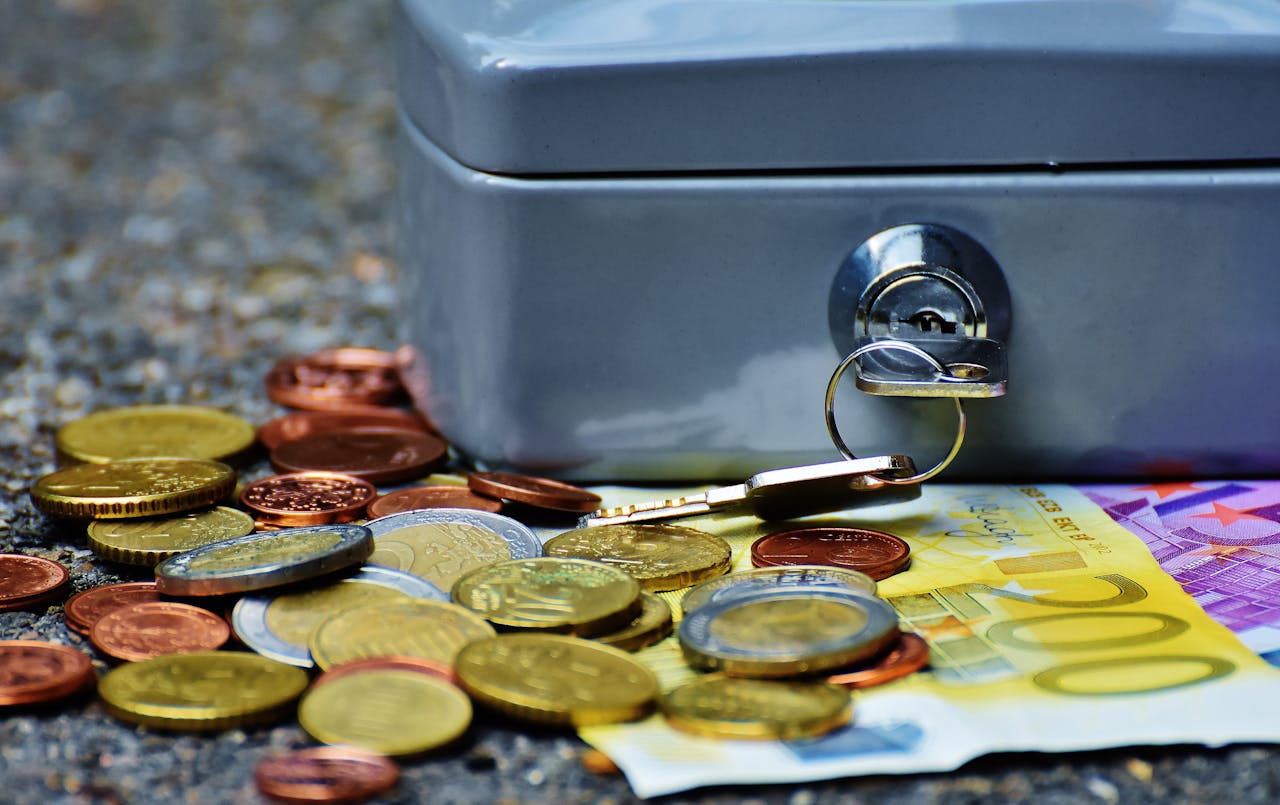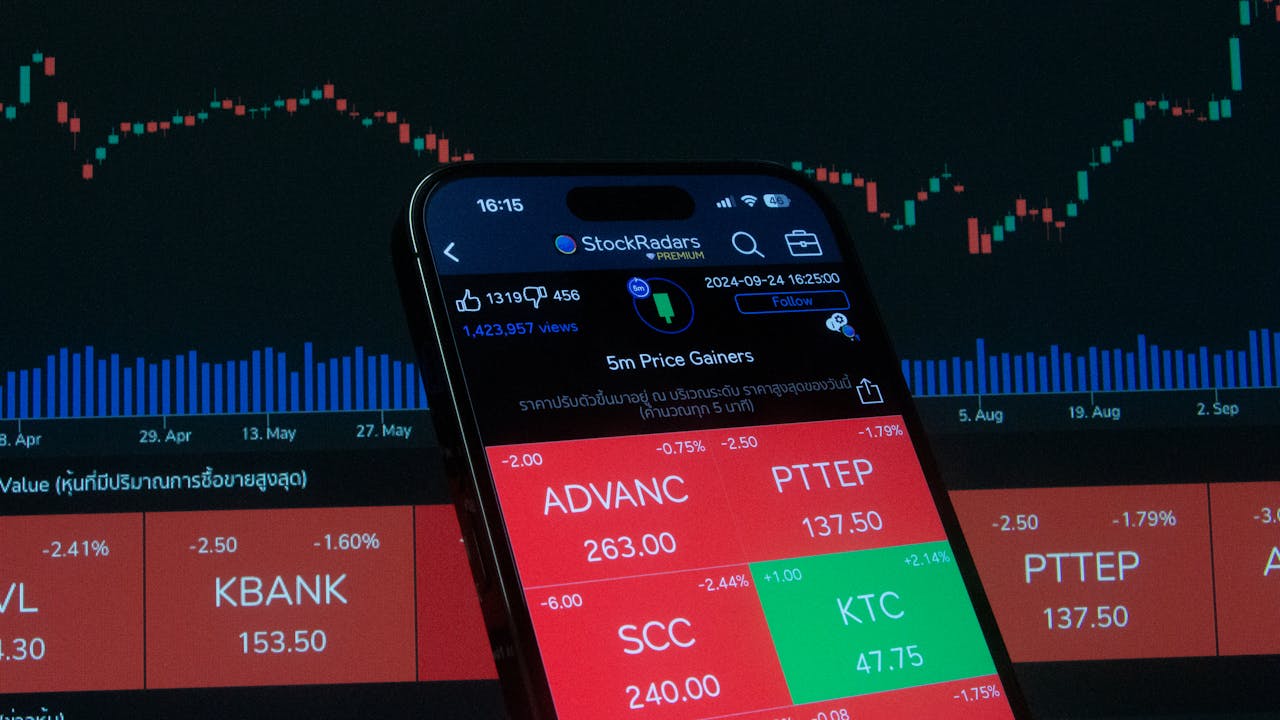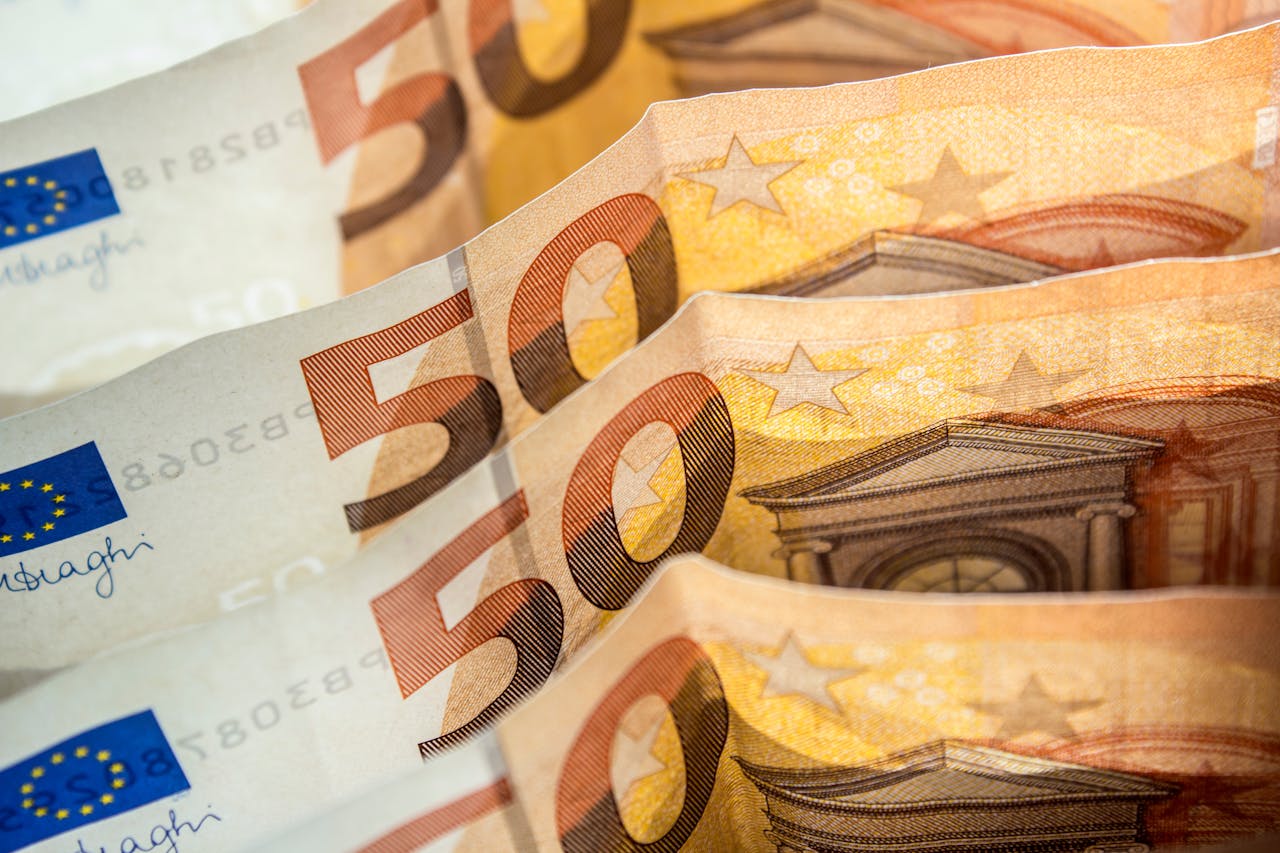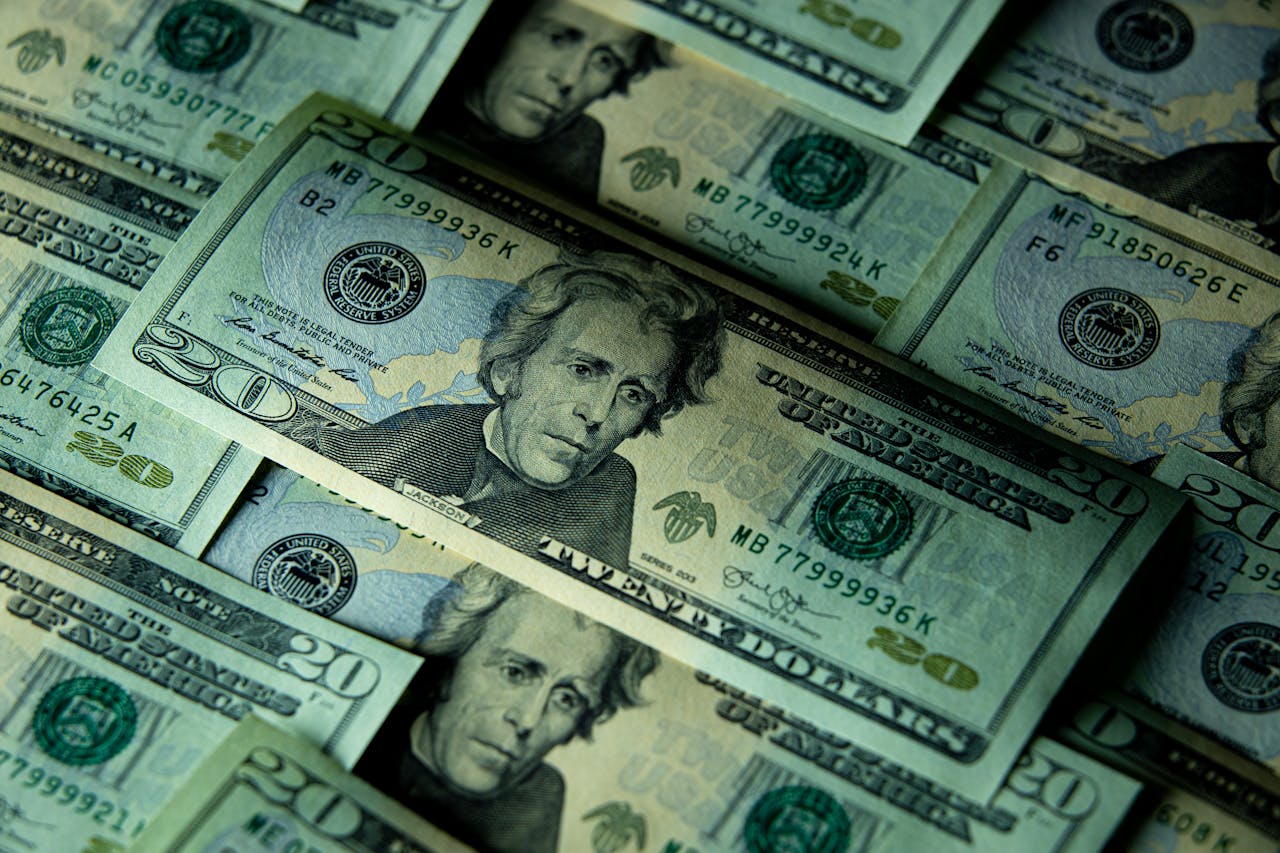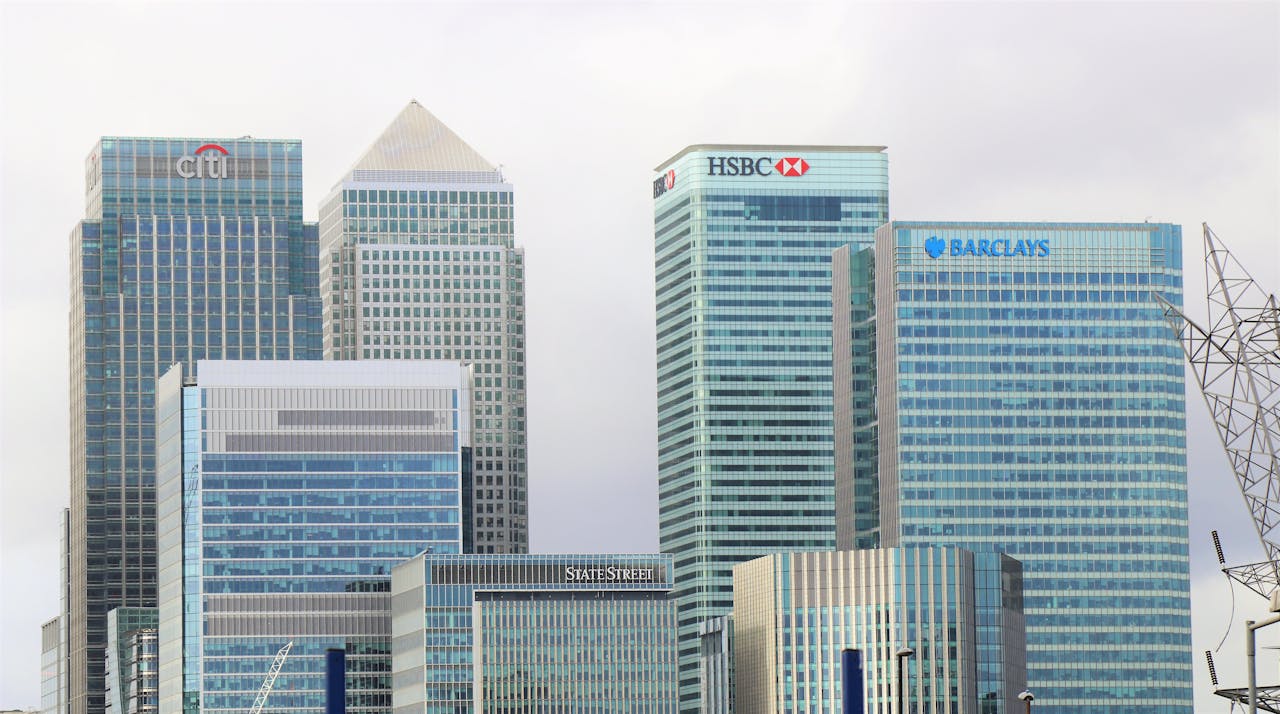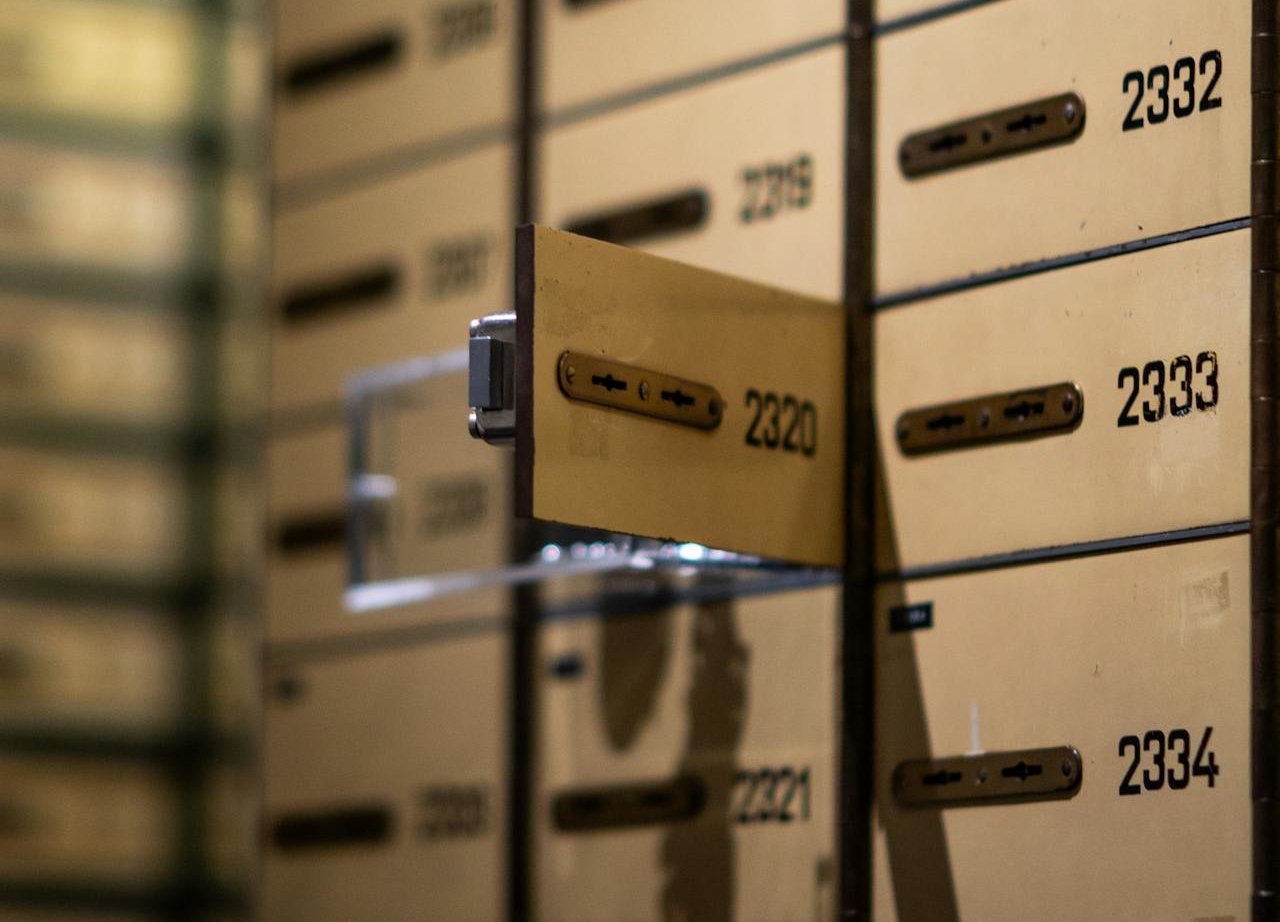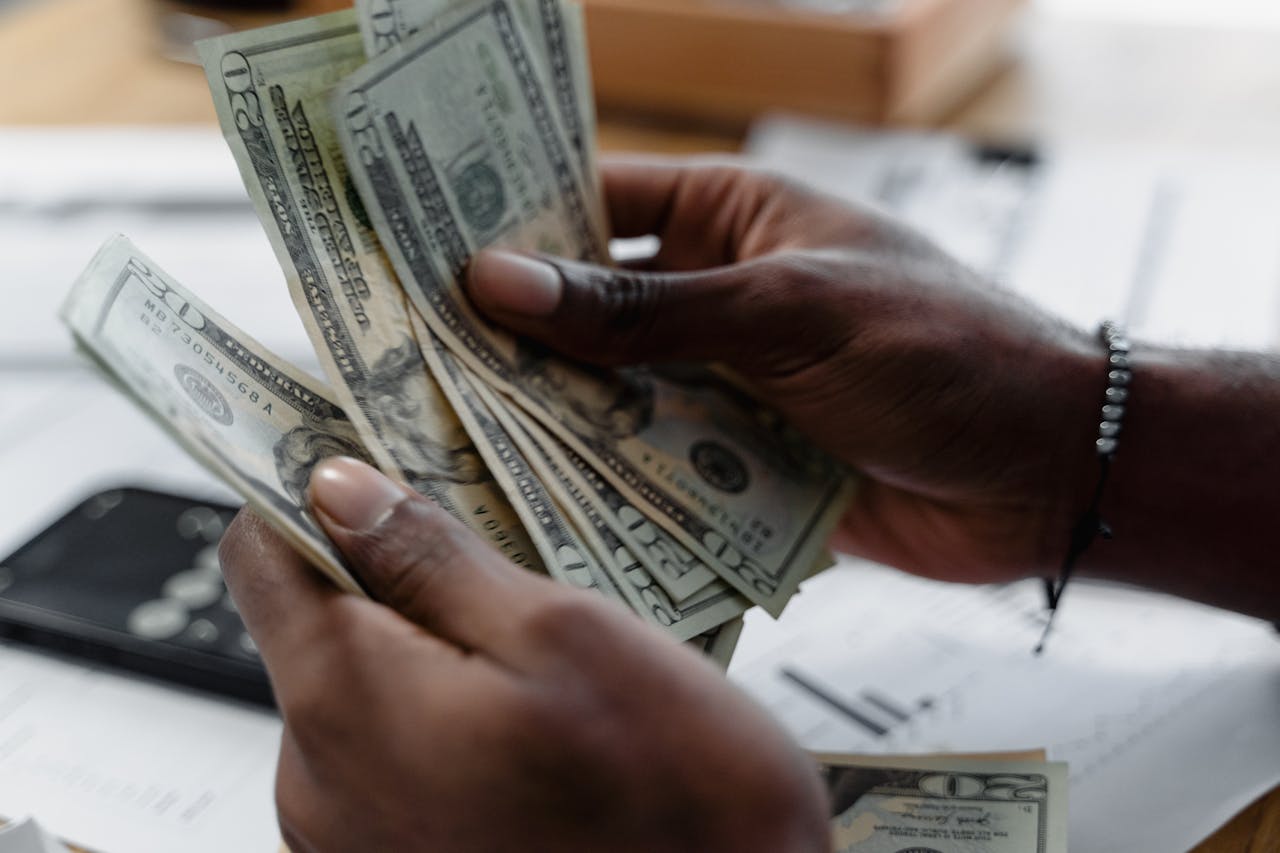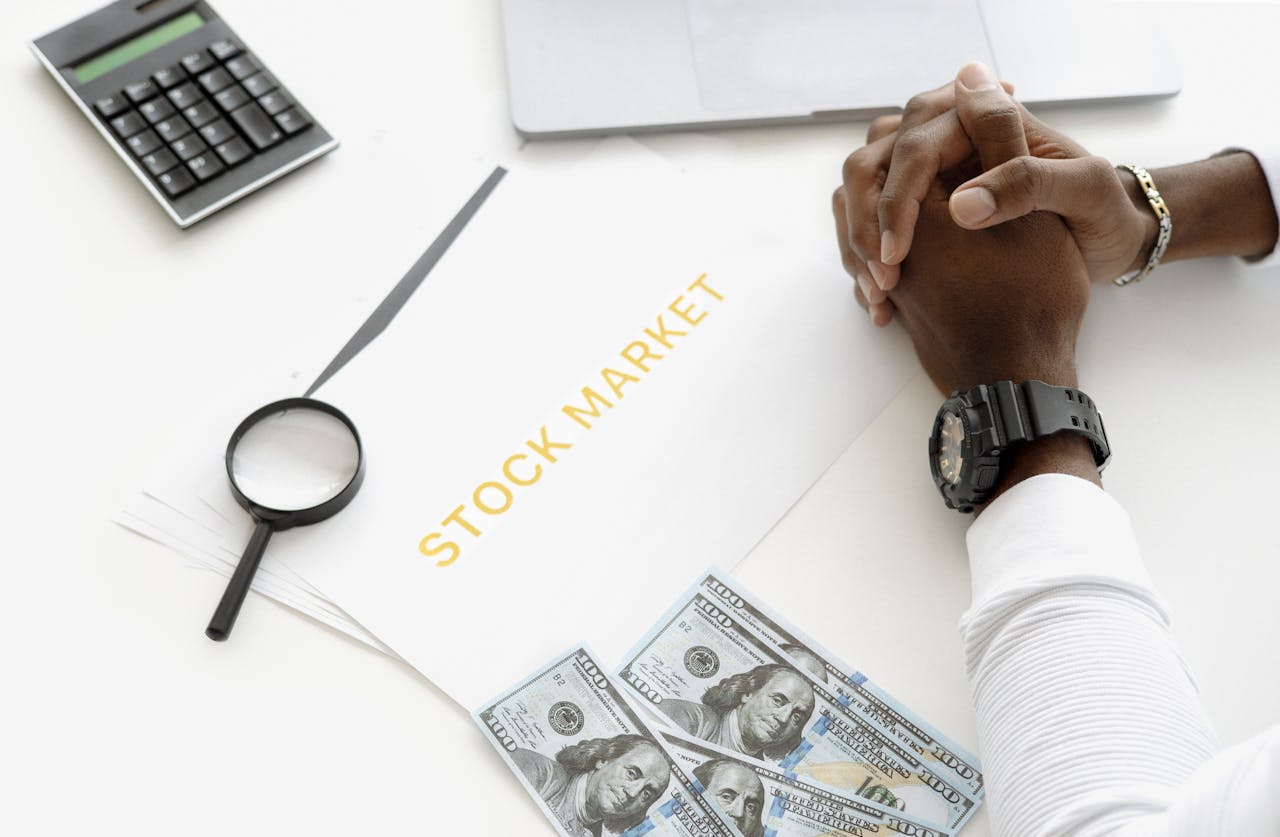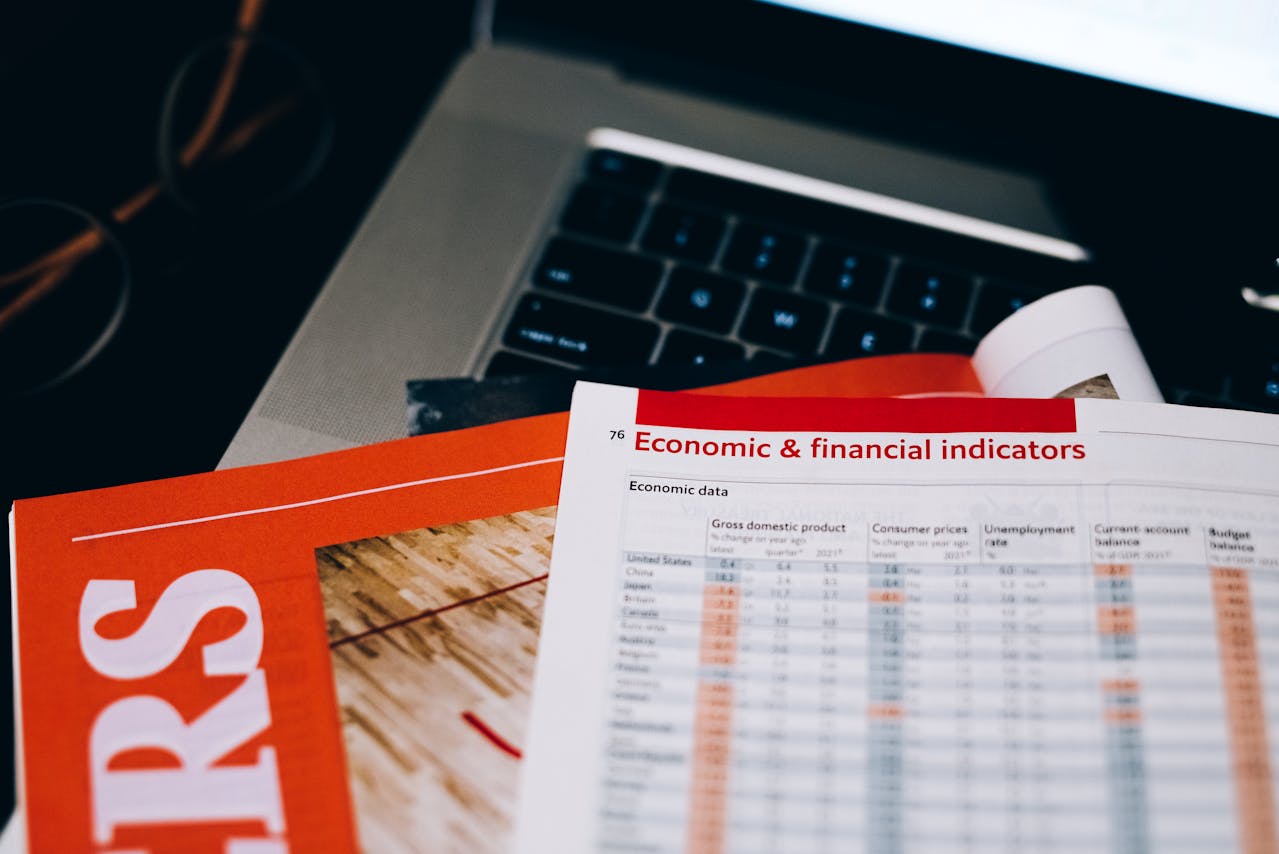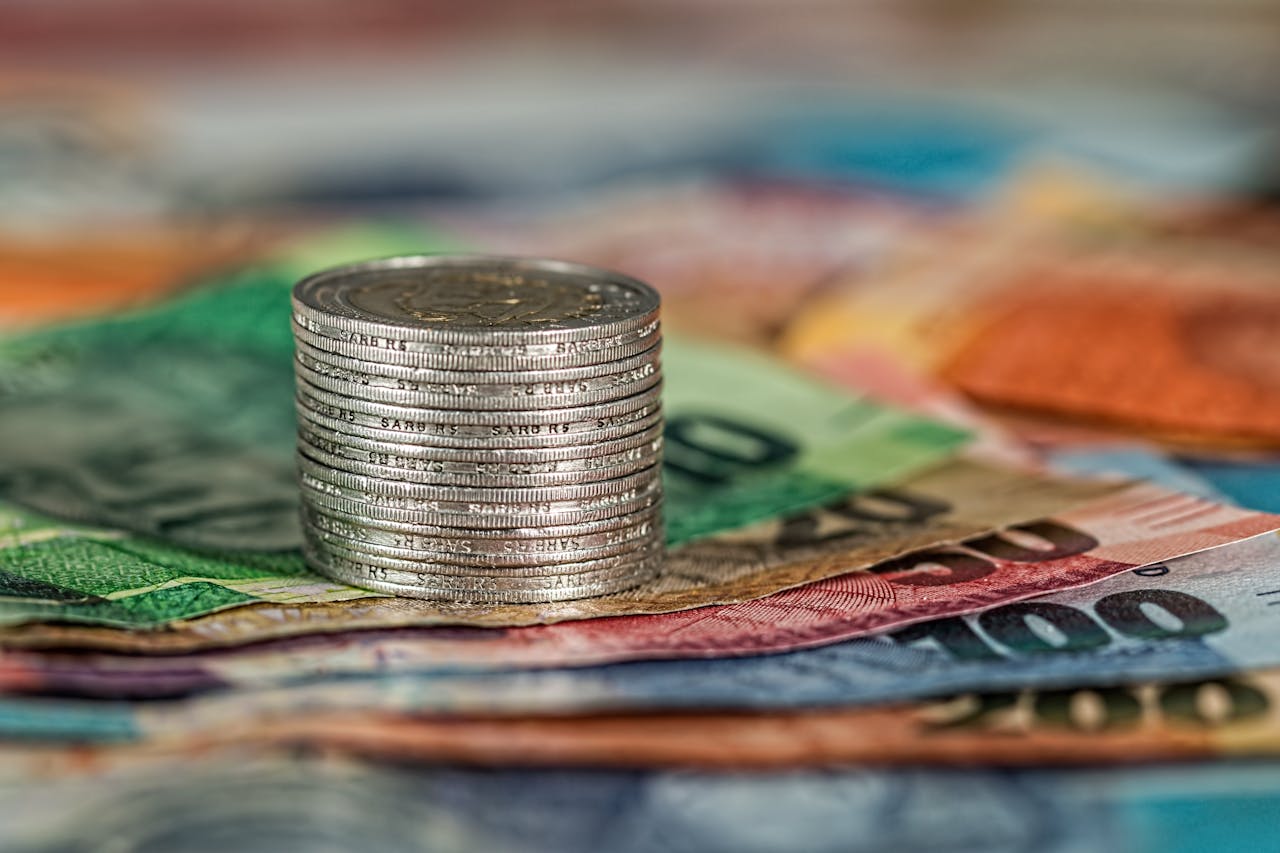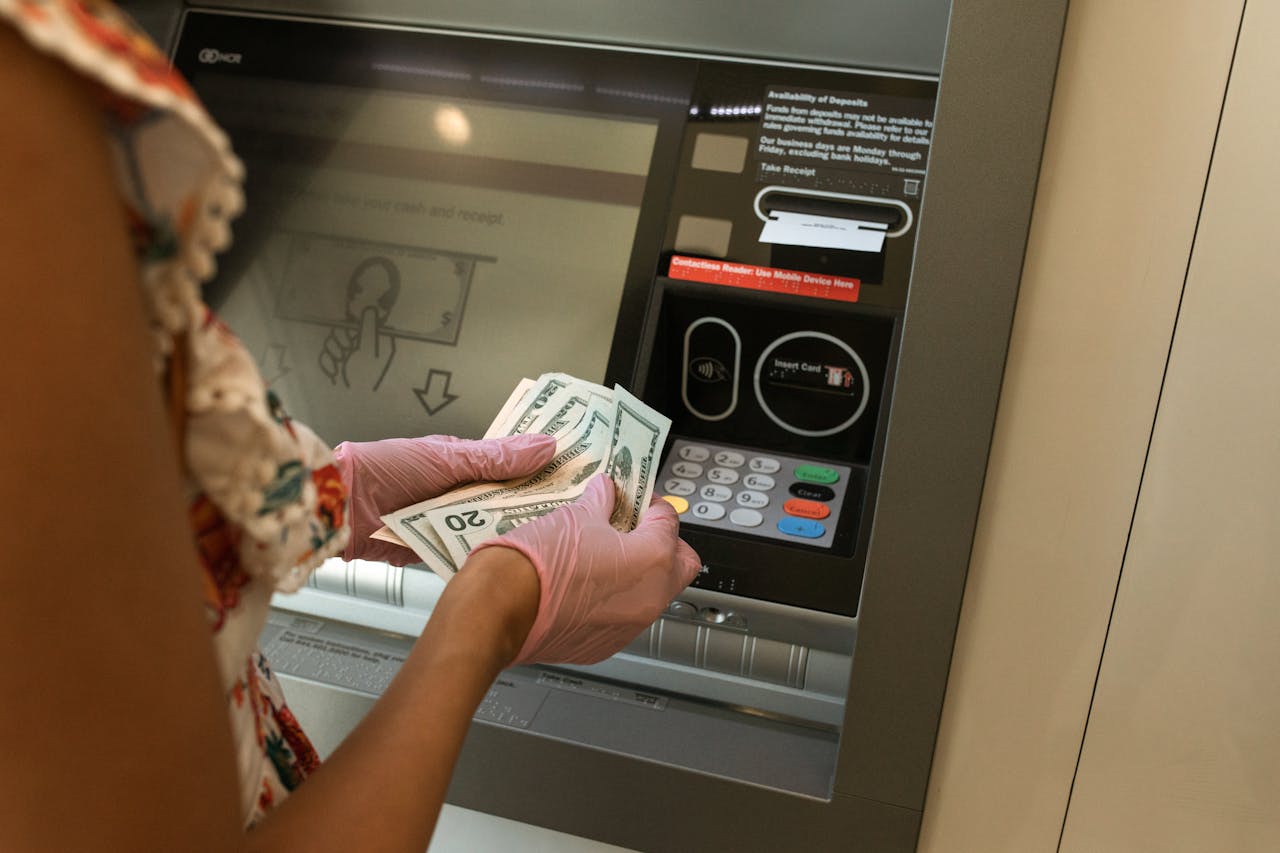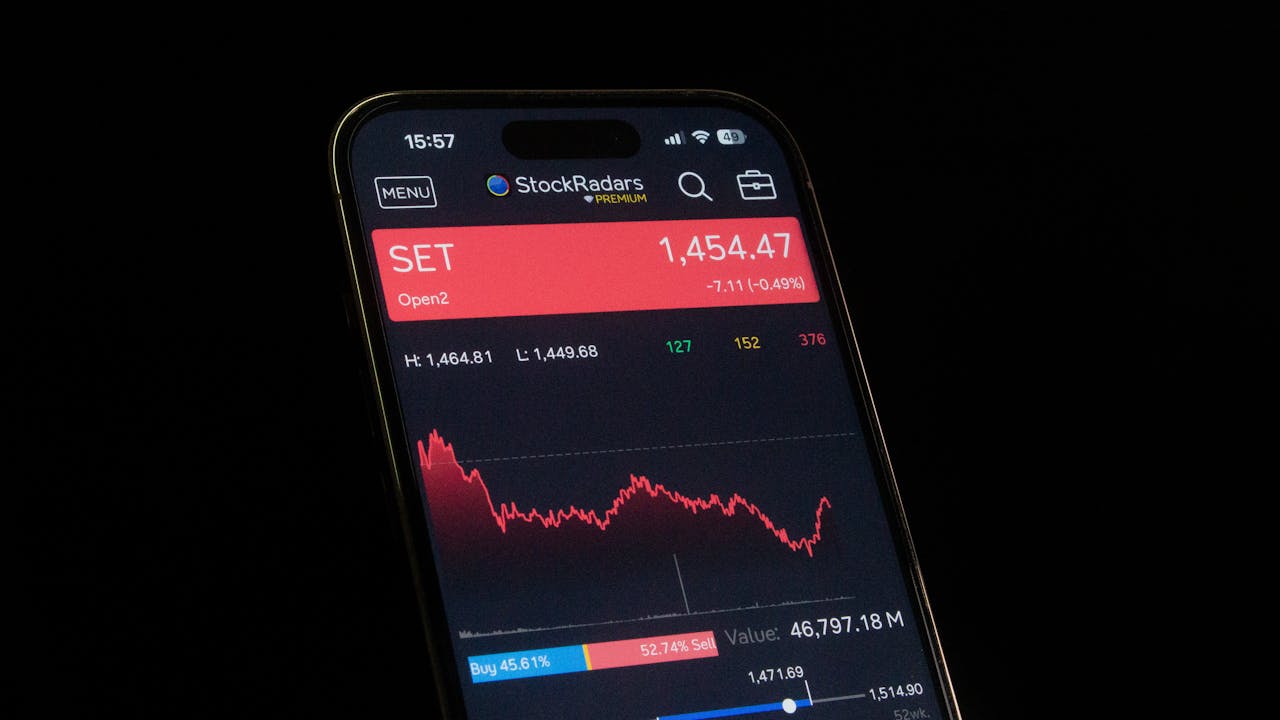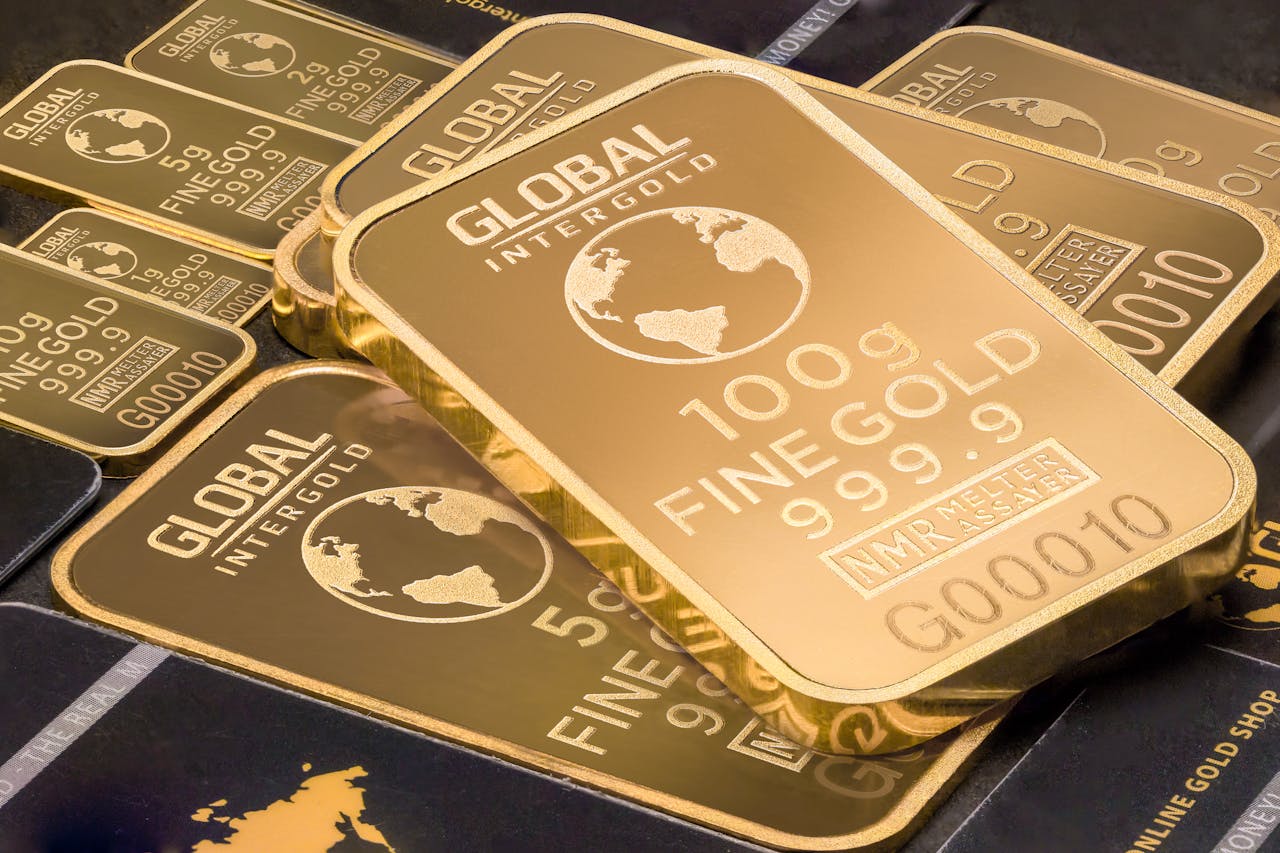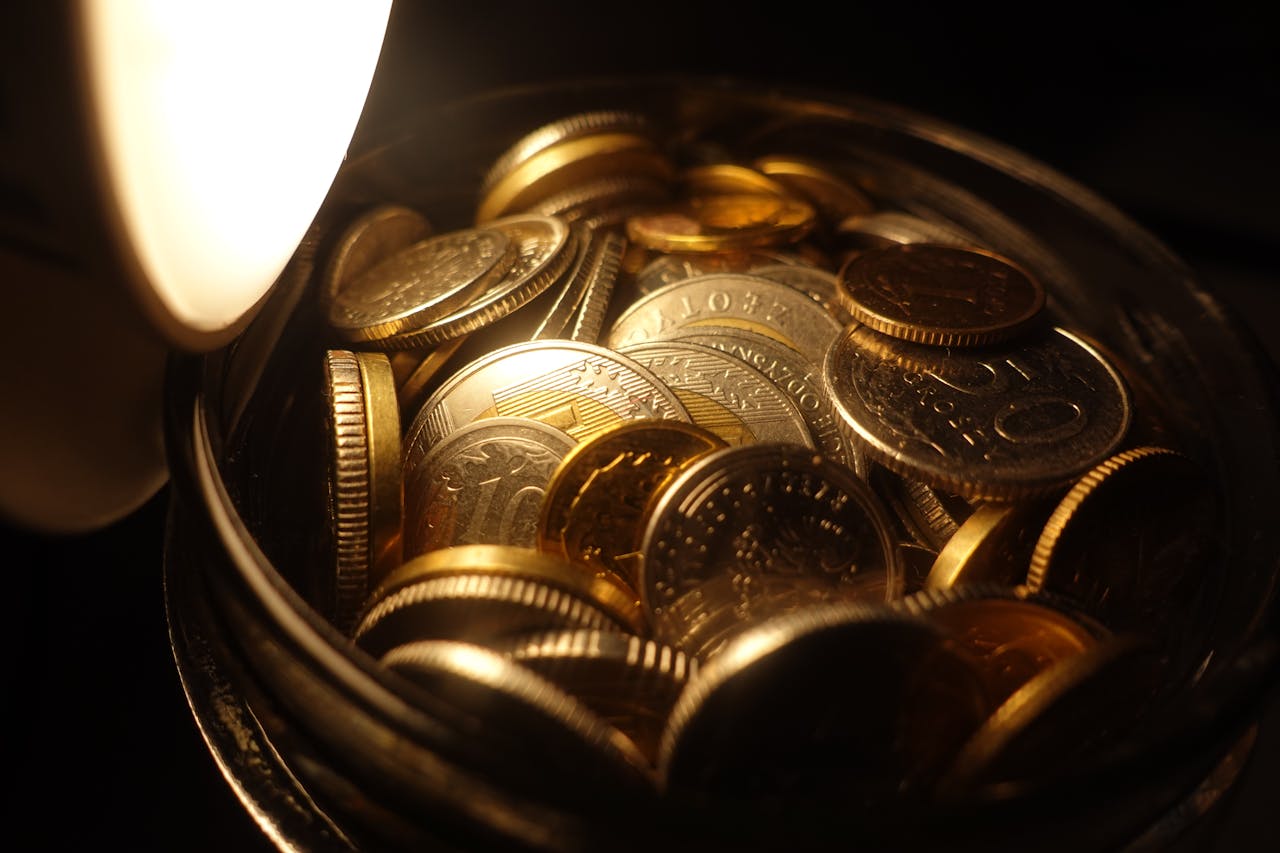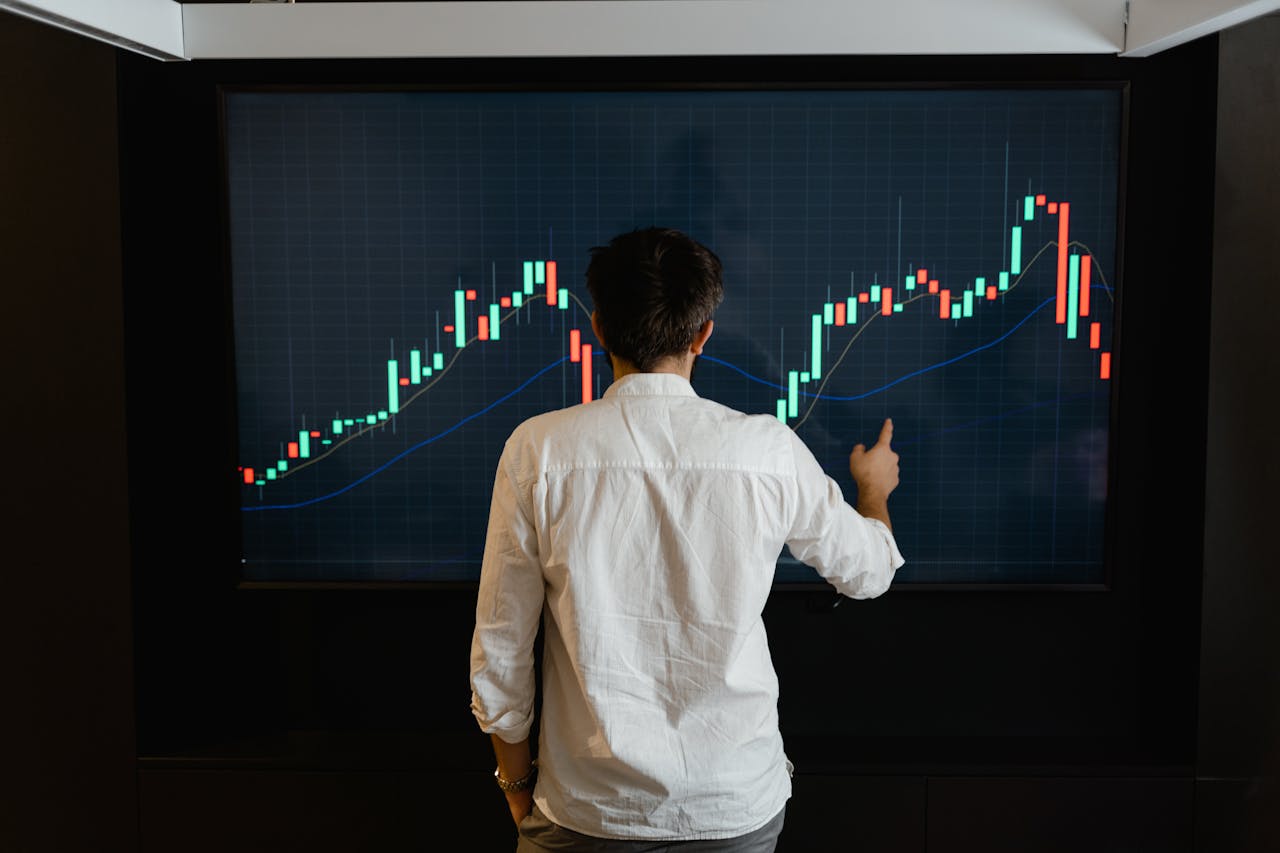These Millionaires Don't Keep Their Money In A Savings Account
Becoming a millionaire is often seen as an insurmountable task for most people. Let's be real: Most of us will never achieve a net worth of over $1 million. But have you ever wondered where those who reach the Million Dollar Club keep their assets? Let's explore where millionaires keep their money, which isn't in a savings account!
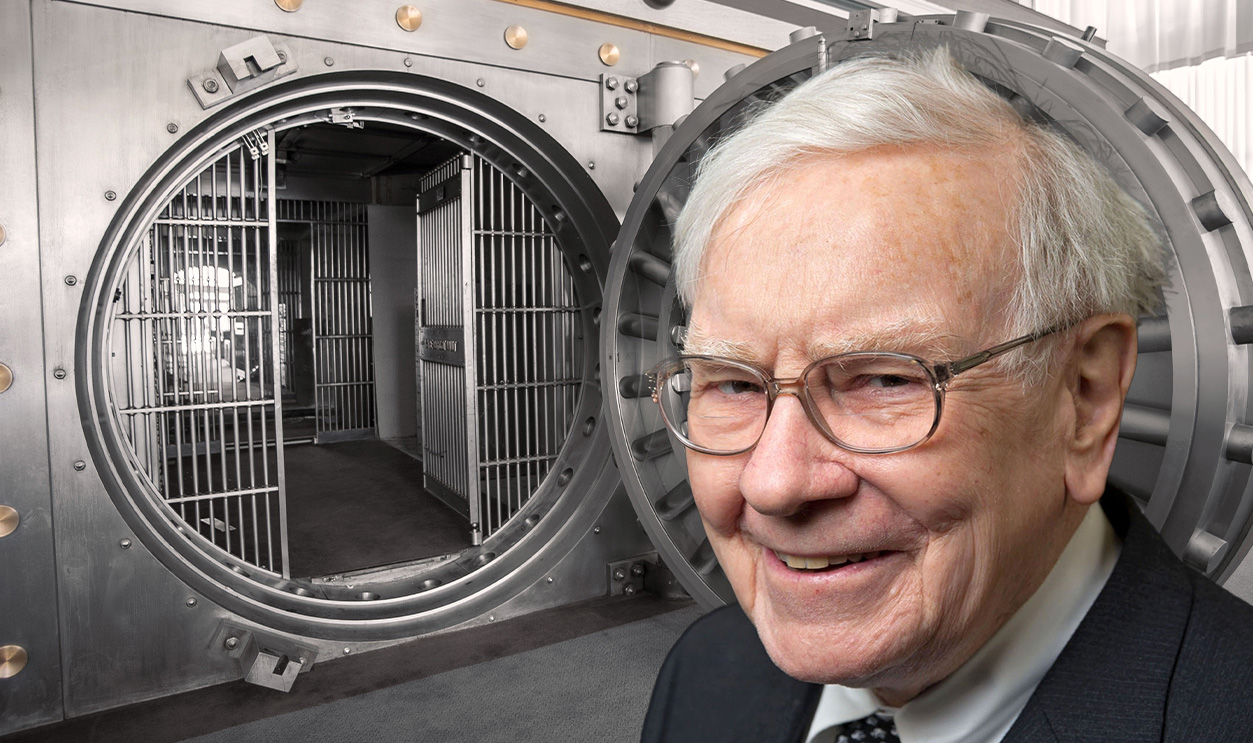
How Do You Become A Millionaire, Anyway?
Before exploring where millionaires keep their money, let's explore how they can become millionaires—it might not be as unachievable as you think, as there were over 55 million millionaires in the US, as of 2024. We haven't included inheriting a fortune of $1+ million, although this certainly does happen for many of the world's richest people.
Asset Diversification
One of the most important things you can learn in finance is diversifying your assets. That is, put your money into many different types of assets. This will provide you with security through lulls in one type of asset class. For example, if you've invested in real estate and the market tanks but you also have money in the stock market, which is performing well, you won't be panicked about the losses you're experiencing in real estate.
Start Saving Early
The earlier you start your saving journey, the richer you'll be when you're older. If, at age 20, you open up a Roth IRA—a type of retirement account—and put in $500/month, you'd have $250,000 by the time you turned 60, assuming that you don't increase your monthly contributions (which you should) as your income goes up. Automating your savings as part of your payday routine is a great way to save without thinking about it.
Avoid Unnecessary Spending
This one almost goes without saying, but you should avoid unnecessary spending on the path to your first million dollars. As tempting as it might be to look at your bank account and go, "I could buy that new car today," think about the debt you're creating unnecessarily and how that will impact your long-term financial goals.
Take Advantage Of Employer-Matched Retirement Savings Plans
Many employers across America will offer employer-matched retirement savings plans. That is, they'll match your annual contributions to your retirement account. Take advantage of this and contribute handsomely to your Roth IRA or other accounts. This will help in saving 15% of your income toward retirement, which is the figure that experts tend to agree is the best percentage of your income to save.
Seek & Take Opportunities To Make More Money
If you have an opportunity to make more money, take it! Whether that means upgrading your professional qualifications, or spending a little more on gas to drive a little further from home for your new job, or even a raise at your present company, take opportunities that make sense for you to make more money.
Use The Services Of A Financial Advisor
Not everyone can make it to the million-dollar figure on their own. Financial advisors are specialists in making people's money work for them. Financial advisors typically take a cut of your earnings for their services. Still, their help could be invaluable as they help manage your investment portfolio and advise you on how best to use your existing money to reach that $1 million goal.
Now, Where Do Millionaires Keep Their Money?
We mentioned asset diversification above. Millionaires don't keep their money in one place unless they're extremely lucky and have come across the next golden goose of the stock market or the next Facebook or Tesla to invest in. Most millionaires will spread their wealth around as they build their net worth. Let's explore where that money ends up.
By The Percentages
According to investment advisor Vanguard, most millionaire clients keep 65% of their wealth in the stock market, particularly in specific stocks rather than exchange-traded funds. Another 25% keep their money in bonds, and 10% in cash.
Liquid Cash Or Cash Equivalents
According to research from SmartAsset, around 25% of American millionaires keep most of their money in liquid cash or cash equivalents. When we say "liquid cash," we don't mean actual dollar bills (although this may make up a portion of someone's net worth); we mean money in an easily accessible bank account, like a checking or savings account.
What Are Cash Equivalents?
Cash equivalent assets are those kept in highly liquid short-term investments. For example, a redeemable Certificate of Deposit is considered a cash equivalent. Treasury bills or money market funds are also considered cash equivalents. These also include savings and checking accounts at a bank.
High-Interest Savings Accounts
Another option for those who prefer liquid cash over tying their assets up for the long-term is to use a high-interest savings account. HISAs, sometimes called HYSAs, will give you a higher interest rate than a traditional savings account, usually for a fixed period before they revert to a "normal" rate. But, if you've got a boatload of money to put in there, the interest earned can be significant.
How To Maximize Returns On High-Yield Savings Accounts
Maximizing your high-yield savings account returns throughout the year could mean shifting banks every few months, or moving your paycheck around every few months, as many banks that offer high interest rates only do so for a few months (usually between three and six) and, as a stipulation, require that you move your paycheck direct-deposit over to their bank. But, if you do this once your offer expires with the last bank, you could see as much as 10% return or higher annually.
Safety Deposit Boxes
Another option is to keep your physical cash in safety deposit boxes. You could use a safety deposit box to keep a large portion of your millionaire fortune in—this is particularly useful if you do business in a foreign country and want to keep a certain portion of your fortune in that local currency, to avoid paying fees for currency conversions.
What's Wrong With Liquid Cash?
On the surface, there's nothing wrong with keeping your money in a liquid cash form. It's easily accessible should you need it, which is one of the only benefits to liquid cash. However, money kept in a savings or checking account only earns a fraction of 1% interest monthly, whereas other investment options have 8% or higher returns.
Real Estate Investments
Another one of the most common options for investing your money for long-term growth is real estate. Unless the bottom falls out of the housing market, the chances are reasonably high that any investment you make in property will either hold or increase its value over time. If you bought a house in 2019, that property's value has increased roughly 17% (till 2025). From 1967 to 2025, housing values have increased over 1,000%.
What's The Best Real Estate To Invest In?
By far, rental properties are the best real estate investments you could make. With younger generations priced out of buying a home and the low vacancy rates on rentals across America, investing your money in a rental property will not only fill a need, but the average return on investment annually for American real estate investors is between 8% and 12%—better than the S&P 500.
The Stock Market
Of course, it's no secret that the stock market is one of the most popular forms of investing for those wanting to grow their portfolio to $1 million. Warren Buffett started in the stock market and his buy-and-hold long-term strategy has made him a billionaire today. The average stock market return is about 8% annually for the S&P 500, but there are other options in the stock market than just a broad-based exchange-traded fund that covers the S&P 500.
What Are Some Of The Best Stock Market Picks For 2025?
Although we're almost through Q1 of 2025, there's never a bad time to invest in the stock market (despite the market uncertainty of the present moment), but NerdWallet has picked out some of the best stock picks to invest in. These are: Palantir Technologies (PLTR), who's performance over the last year was a 317% return; GE Vernova, who returned 142%; and Texas Pacific Land Corporation, who returned 111%.
Private Equity Funds
Almost exclusively used by the ultra-wealthy, private equity funds are another excellent option for investment. Private equity funds work by acquiring investments from pension funds and universities, or other large organizations. These might not be for you if you're just starting out on the road to $1 million, but if you already have a net worth of over $250,000 and are an accredited investor, consider putting your money into a public equity fund.
Hedge Funds
The stock market is full of hedge funds. Hedge funds use a pool of funds to attract investors, using various strategies ranging from timing the market to high-tech analysis, to make the most money for their investors in a short period of time. While there aren't any guaranteed "get rich quick" schemes, hedge fund investing may be the closest.
Dividend-Paying Stocks
If you want to earn a consistent income into retirement, then a dividend-paying stock may be a great option to invest in. Generally, the more you put in, the more you'll get out. You can even spread your money across different types of dividend-paying stocks. Dividend-paying stocks could provide a money guarantee into retirement and help your money make money for you without having to lift a finger.
Baskets Of Stocks
Baskets of stocks are a great option for younger investors with the time and money to invest consistently. An exchange-traded fund, or ETF, is among the most common options that would-be millionaires choose when they're just starting out investing. ETFs are buy-and-hold vehicles that you should continue to buy as money allows. VOO is a popular ETF that mirrors the S&P 500, returning about 8% per year.
Precious Metals & Gold
Another, less exciting (but no less viable) investment option is to buy shares in gold or precious metals. These tend to take longer to see a return, but are considered safe investments, even in the event of a monetary crisis or a serious stock market collapse, as we have seen recently.
Bonds
Another fixed-income instrument of the wealthy (or soon-to-be millionaires) are bonds. There are different types of bonds and depending on your financial picture, risk tolerance, and so on, a certain type of bond asset may be a better fit for you.
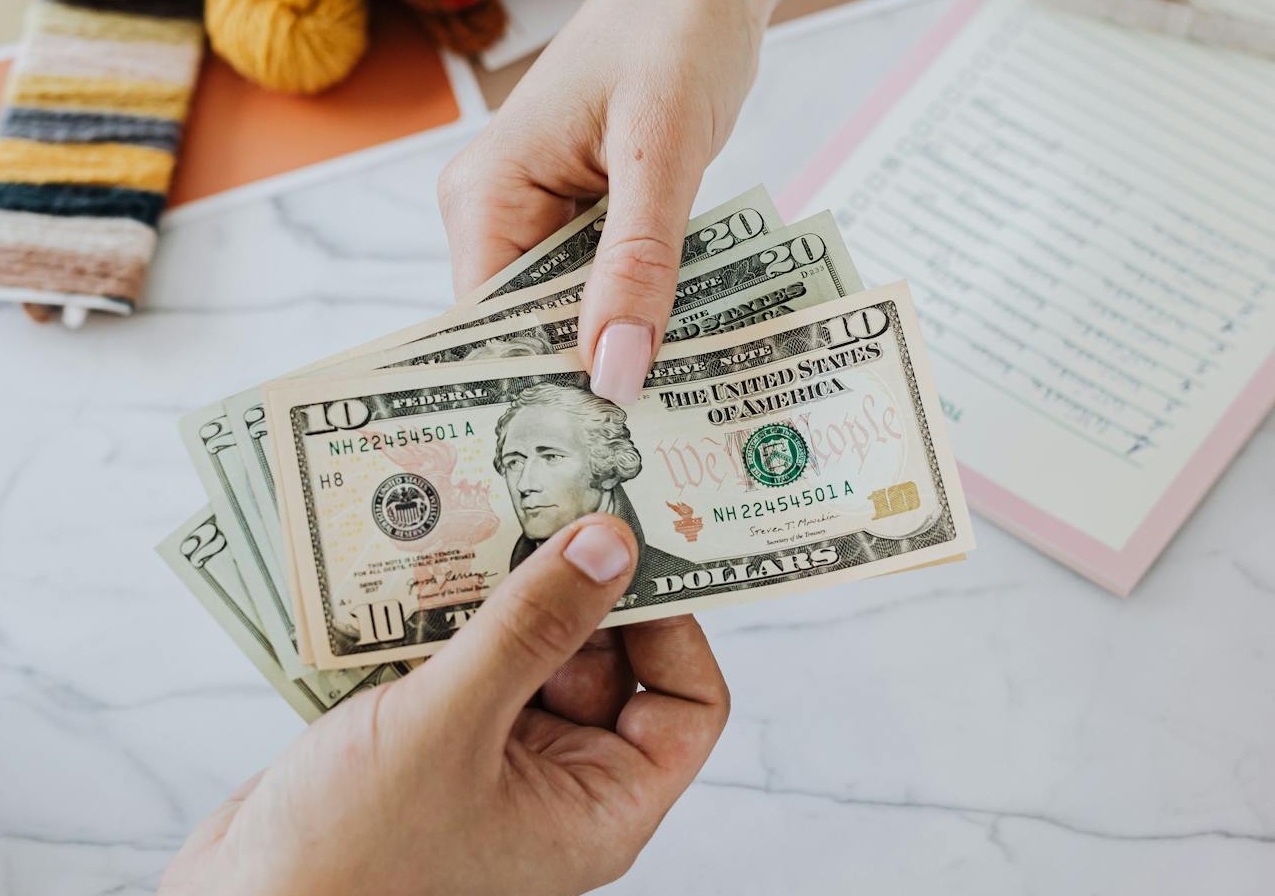 Photo By: Kaboompics.com, Pexels
Photo By: Kaboompics.com, Pexels
Corporate Bonds
Corporate bonds are what companies can use to raise capital for initiatives within the company, such as an expansion. For example, Meta may issue corporate bonds to raise money for expanding. Corporate bonds generally offer a higher return than the stock market, but the interest you earn is taxable. Bear this in mind when investing in corporate bonds and do your research before investing in a specific company's corporate bond.
Municipal Bonds
Municipal bonds are issued by municipalities to pay for things like roads, schools, and hospitals. Unlike corporate bonds, the interest you'll earn on these investments is tax-free. They are also considered lower risk than corporate bonds.
Treasury Bonds
By far the safest type of bond you could purchase is a treasury bond. This type of bond is guaranteed by the United States Government and is considered risk-free: your money is safe, short of a governmental collapse. Treasury bonds are tax-exempt from municipal and local taxes, but not from federal taxes. They don't get as high interest as corporate bonds, but are risk-free.
Bond Funds
Bond funds are a type of bond that invests in a variety of bonds, including all the above-mentioned bonds. These offer higher interest rates than traditional certificates of deposit, or HYSAs, but the income generated by a bond fund may fluctuate over time.
Junk Bonds
Finally, we come to junk bonds. These are considered the worst type of bonds to invest in. They're a type of corporate bond that has a higher default risk than traditional corporate bonds. Only for those with more money than Croesus or an extraordinarily-high risk tolerance, junk bonds should otherwise be avoided.
Where Do The Nation's Top Billionaires Keep Their Money?
As we've alluded to above, asset diversification is the key to building a millionaire portfolio. But what is in the portfolios of the nation's richest people? Let's explore where America's top billionaires keep their wealth.
Larry Ellison
With a net worth of $162 billion, Larry Ellison is the co-founder of Oracle, a database program that made Ellison his fortune. The 80-year-old relinquished his CEO role at Oracle in 2014, but maintains a 41% ownership stake in the company, valued at $121 billion. He also has $11.7 billion in Tesla stock and $28.1 billion in cash, including 98% ownership of the Hawaiian island of Lanai, and multiple homes across the world, including an entire village in Kyoto, Japan.
 Oracle Corporate Communications, CC BY 2.0, Wikimedia Commons
Oracle Corporate Communications, CC BY 2.0, Wikimedia Commons
Warren Buffett
America's most famous living investor, Warren Buffett started his investing journey using the profits from his paper route at 14 years old. He first bought shares in textile company Berkshire-Hathaway in 1962, at 32 years old, and has a net worth of $166 billion. His ownership stake in Berkshire-Hathaway accounts for $165 billion, with subsidiary ownership across the entire industrial spectrum.
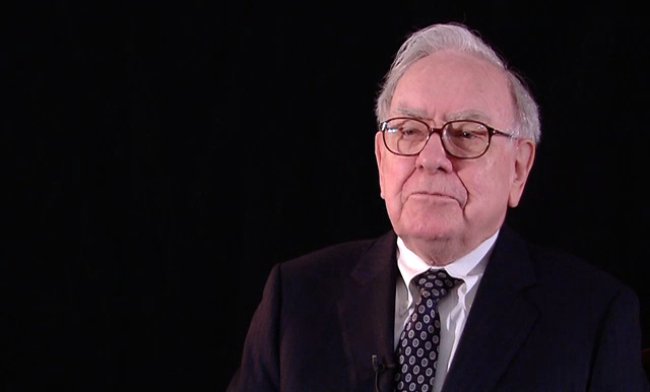 USA White House, Wikimedia Commons
USA White House, Wikimedia Commons
Bernard Arnault
French businessman Bernard Arnault is CEO of LVMH, a conglomerate which owns Louis Vuitton, Marc Jacobs, Sephora, and others. He has a net worth of $167 billion, $149 billion of which comes from his 49% share in LVMH, with other assets including property, vehicles, and investments made by LVMH.
 Jérémy Barande, Wikimedia Commons
Jérémy Barande, Wikimedia Commons
Mark Zuckerberg
A man who needs absolutely no introduction: the CEO of Meta, parent company of Facebook and Instagram, Zuckerberg started Facebook when he was in college and has since amassed a net worth of $204 billion. With just a 13% ownership stake in Meta that accounts for $198 billion of his net worth, the other $6 billion is in liquid assets, including multiple properties in California and Hawaii.
 Anthony Quintano, CC BY 2.0, Wikimedia Commons
Anthony Quintano, CC BY 2.0, Wikimedia Commons
Jeff Bezos
The man rivalling Elon Musk to build rockets, Jeff Bezos' net worth is a staggering $212 billion. The founder and CEO of Amazon, which he began from his garage after resigning from the hedge fund DE Shaw in 1994, Bezos maintains an 8.6% ownership stake in Amazon, worth $173 billion. Other parts of his net worth are Blue Origin, a $15 billion private asset, the Washington Post, a $250 million private asset, Koru (worth $500 million), and a further $23 billion in cash.
 Daniel Oberhaus, CC BY 4.0, Wikimedia Commons
Daniel Oberhaus, CC BY 4.0, Wikimedia Commons
Elon Musk
Of course, the richest man in the world is Elon Musk. With an astonishing net worth of $316 billion. Founder of Tesla (where he made his fortune), Musk maintains a 13% ownership stake worth $103 billion. Other assets include companies like The Boring Company ($3.33 billion), Neuralink ($2.07 billion), and XAI ($20.7 billion). Of course, Musk has multiple properties and other investments.
 JD Lasica, CC BY 2.0, Wikimedia Commons
JD Lasica, CC BY 2.0, Wikimedia Commons
Where Will You Keep Your First Million?
What do you have planned to build your first million dollars? Let us know in the comments how you'll make that million-dollar net worth and where you'll keep it.
You May Also Like:
The Weirdest Shark Tank Products




